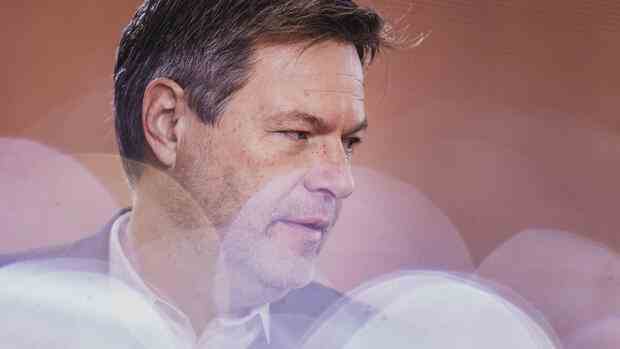The Economics Minister voted on behalf of the federal government for the gas price cap.
(Photo: IMAGO/photothek)
The German economy minister is not convinced by the law, which he approved on Monday. He believes that it doesn’t have much benefit but poses great risks. He made no secret of that.
Nevertheless, Robert Habeck did not vote against the gas price cap or abstain. He gave up the resistance to please his European partners.
is that wise Should one vote against one’s own convictions on such an important decision, just so as not to appear as a blocker?
Economically speaking, there is a lot to be said against it. The mere prospect that gas shipped to Europe will no longer be freely traded at some point, but will only be traded up to a price of 180 euros per megawatt hour, could make gas more expensive. The more uncertain the market conditions are, the more international traders charge for their goods.
Top jobs of the day
Find the best jobs now and
be notified by email.
The fact that many EU countries still wanted a gas price cap is based on the assumption that the extreme gas prices in the summer were based on manipulation or some kind of illegitimate speculation. However, leading economists in Brussels and Berlin reject this view of things.
Habeck doesn’t believe in it either. The fact that he nevertheless agreed is probably due to the fact that Germany has a lot to make up for in the EU. Because Germany has made itself quite unpopular with many partners in this energy crisis.
Berlin’s naïve Russia policy played a large part in Europe becoming so dependent. Putin used gas as a weapon this year. German politics gave him this weapon.
The expectations of Germany’s contribution to overcoming the crisis were correspondingly high. However, the federal government did not deliver.
Instead of joining forces with other countries and buying liquefied gas together on the world markets, Berlin acted on its own account and drove up the prices for everyone. In addition, the €200 billion relief package from the traffic light coalition was seen as lacking in solidarity in Europe.
The sometimes wide-legged appearance of the Germans at the European meetings reinforced this impression.
It is Germany that is still extremely dependent on the infrastructure of its neighbors when it comes to gas. Giving in in this situation, even against one’s own economic conviction, is also worth something.
More: EU energy ministers agree on gas price cap of 180 euros
